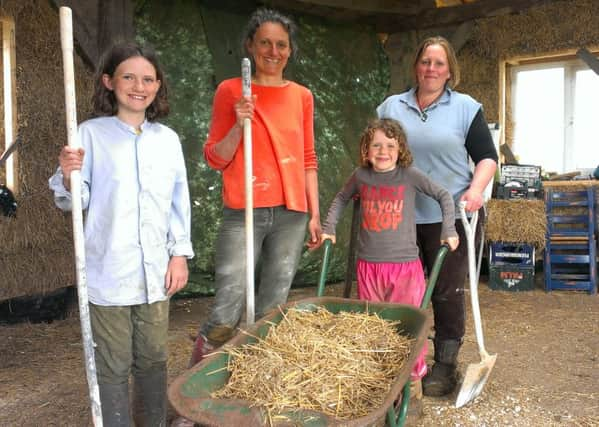Farmers demonstrate an alternative way of living


Permaculture farmer Hannah Thorogood bought an 18 acre field near Scredington six years ago. Named ‘The Inkpot’ after a nickname given to her traditional cottage by neighbours, she has been developing it into a permaculture demonstration site and education centre.
Hannah explains that permaculture is about working with the land and the environment, not against it, to be more sustainable instead of demanding limited fossil fuels and pesticides. It is about low input for high output.
Advertisement
Hide AdAdvertisement
Hide AdIt is also aimed at protecting against economic uncertainty and vulnerable crops, adapting farming practices and food production techniques to the soil and climate.


At university she researched pesticide residues in food for degrees in Environmental Studies and Organic Farming. She first experienced permaculture in New Zealand on a range of small holdings producing a variety of food and has herself been teaching about permaculture for 18 years.
She bought the traditional arable field six years ago and turned it to grass to regenerate the soil. This spring has seen the full launch of the project with courses in permaculture and others such as a “Draw what you see day” to help people connect with the landscape. Other courses are offered by a herbalist, a basket maker and a chef who all volunteer their time.
Volunteer days where everyone gets hands on with nature in the outdoors preparing the site are very popular. It is also used by home schooling families. There are more details at: www.the-inkpot.com.
Advertisement
Hide AdAdvertisement
Hide AdHannah, who comes from a normal farming background, says she has great respect for farmers. She is simply offering ideas for people who may wish to choose a different path of growing food, building and working with animals. “This is an experiment to see if it does work,” Hannah said. “I see so many farmers burnt out and children not wanting to go back to their family farms.


“Many people have disengaged with what and where their food comes from.”
Volunteers have helped build an animal shelter from bales and old tyres, with recycled windows, lime wash and mud walls. They have acquired Lincolnshire Longwool sheep and Lincoln Red cattle, chickens and turkeys. They grow herbs, fruit and vegetables. Grassland usage is rotated as is done in Africa.
Hannah said: “It is a happier, healthier lifestyle and we are just giving it a go to find out if there is a different way to live.”